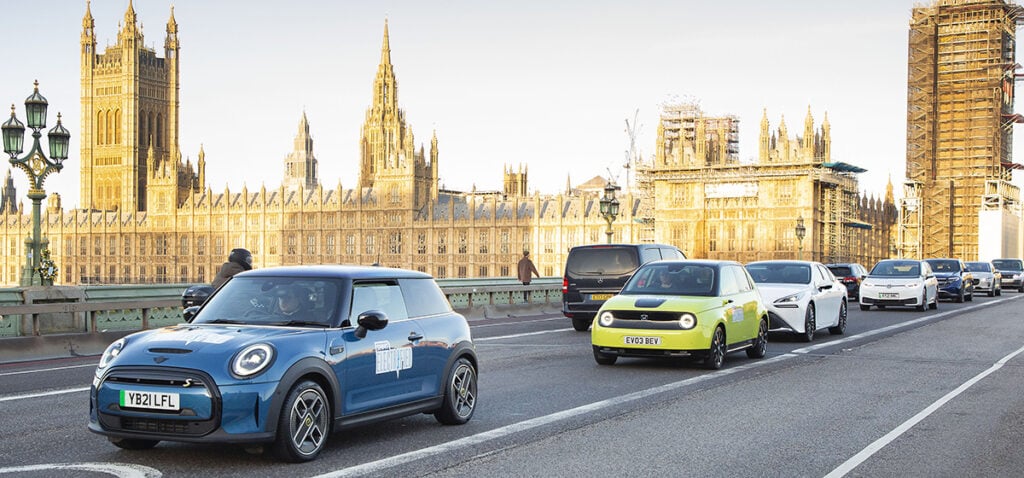The latest figures published by the Society of Motor Manufacturers and Traders (SMMT), show that despite the promise of a 19.8% increase in new battery electric vehicle (BEV) registrations, the roll out of new chargepoints “is failing to keep pace”.
SMMT showed that the number of new registered cars grew by 14.7% from January 2022. Electric vehicles (EVs) notably drove this increase, as SMMT identified that one in five new cars registered last year were electric.
This figure is set to grow to one in four next year, meaning that new EV registrations will increase by 32.1%.
The promise of growth these figures present to the EV market are threatened however, by the severe lack of new charging infrastructure.
Despite Zap-Map recording an estimated 33% increase in EV chargers in December 2022 from November 2021, SMMT noted a “significant fall” in the roll out of new EV chargepoints in Q4 2022 compared to the same period in 2021, decreasing from one new chargepoint for every 42 new EVs to one per every 62.
On average in 2022, only one standard public charger was installed for 53 new plug-in cars registered, which SMMT has called “the weakest ration since 2020.”
According to SMMT’s data, the north west presented the poorest newly registered EV to new chargepoint ratio at 291:1, closely followed by the south west with 242:1.
This disparity is having an effect on the EV market, as research published by Paythru last year indicated that 80% of UK drivers could be deterred from driving an EV due to poor chargepoint experience.
SMMT has said that the upcoming Spring Budget will be an ideal opportunity to address the imbalance between EVs and chargepoints as well as to implement measures to support the EV transition.
Higher production costs mean that over half of all available BEVs will be subject to the expensive zero emission vehicles (ZEV) supplement expected to come into force in 2025; this SMMT stated, “would unfairly penalise those making the switch and risk disincentivising the market.”
To facilitate a just transition, SMMT suggested reducing VAT on public chargepoints from 20% to 5% in-line with home charging. SMMT also called for the government to review proposals to design a Vehicle Exercise Duty regime designed for fossil fuelled cars onto ZEVs.
“The automotive industry is already delivering growth that bucks the national trend and is poised, with the right framework, to accelerate the decarbonisation of the UK economy,” said Mike Hawes, chief executive at SMMT.
“The industry and market are in transition, but fragile due to a challenging economic outlook, rising living costs and consumer anxiety over new technology. We look to a Budget that will reaffirm the commitment to net zero and provide measures that drive green growth for the sector and the nation.”






